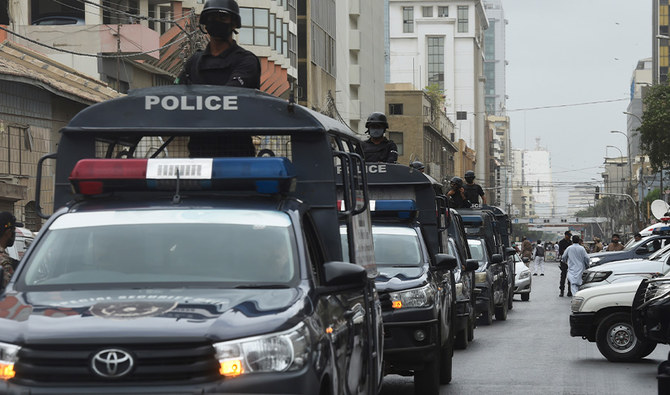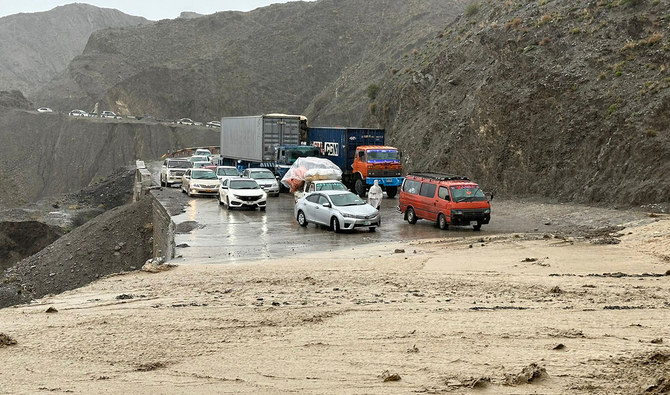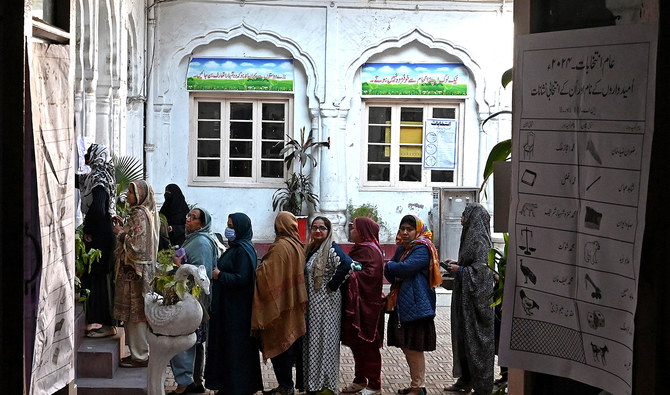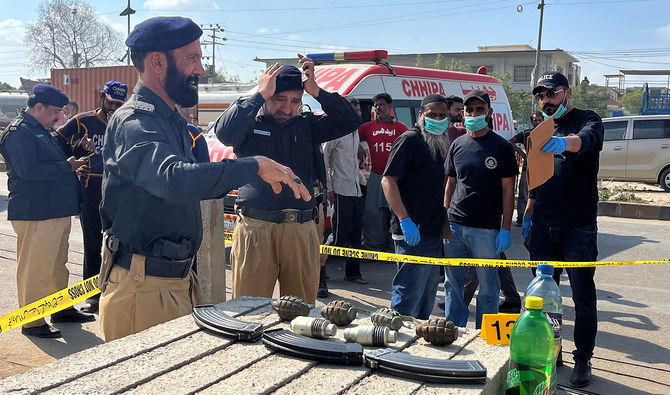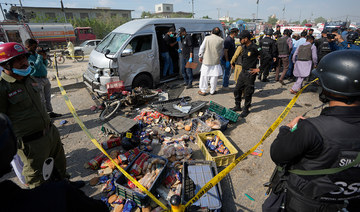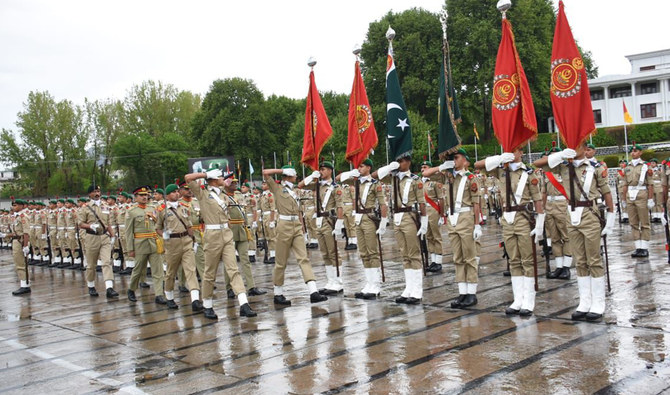KARACHI: Security officials in Pakistan say investigations into a spate of recent attacks in the southern Sindh province have led them to believe there is growing closeness between Sindhi separatists and militant groups from the insurgency racked Balochistan province, but experts warn that it might be too early to assume a “nexus”.
Late last month, gunmen attacked the Pakistan Stock Exchange building in the city of Karachi, the capital of Sindh, killing two guards and a policeman before security forces killed all four attackers. Counterterrorism officials said the attack had been claimed by the Baloch Liberation Army (BLA), a separatist group from the southwestern province of Balochistan which has been designated as a terrorist organization by the United States and the European Union.
Just weeks earlier, three consecutive explosions killed four people including two soldiers in Sindh. A shadowy secessionist organization, the Sindhudesh Revolutionary Army (SRA), that wants the province to break from the Pakistani federation, claimed responsibility for the attacks. This week, SRA also claimed a grenade attack on a Karachi bakery in which a retired paramilitary Rangers official was killed.
SRA and two other Sindhi groups were banned by the government in May this year.
Speaking to media after the attack on the stock exchange building, Sindh Rangers chief, Major General Omer Ahmed Bukhari, said the string of attacks had proved that “hostile intelligence agencies” were working to forge a “nexus” between Sindhi and Balochi insurgent groups, adding that he believed ongoing investigations would establish this beyond a doubt.
In a statement emailed to the media after the stock exchange attack, the BLA admitted it had “complete support” from Sindhi groups.
“Today both the nations [Baloch and Sindhi] are fighting for the independence of their homelands against Pakistan,” the BLA statement said. “We had the complete support of Sindhi nation in today’s attack and it shows a strong brotherly bond between both the nations.”
Separatists have been fighting security forces for years in Balochistan over what they see as the unfair exploitation of the province’s vast mineral wealth. They also claim security forces have pushed them to take up arms because of a long history of human rights abuses against the Baloch people, which security forces and subsequent governments in Balochistan have vehemently denied. Insurgents are also opposed to, and attack, projects linked to China’s Belt and Road infrastructure initiative in the resource-rich province.
Pakistan has regularly blamed India for supporting Baloch separatists, a charge Delhi denies.
Last month, Pakistani Prime Minister Imran Khan told parliament he had no doubt India was behind the attack on the stock exchange building, which India promptly denied. Khan offered no evidence for his allegation, but he said there had been intelligence reports warning of attacks in Pakistan and he had informed his cabinet about the threats.
Sindhi separatists like the Sindhudesh Revolutionary Army have carried out low-intensity attacks in the past, including blowing up train tracks, but their fight has been less violent than that of neighboring Balochistan where separatists have attacked a Chinese consulate, a major hotel chain and on many occasions killed security officials patrolling a coastal highway.
Now, officials fear Sindhi groups might be able to enhance their capacity to carry our deadlier attacks with help from Baloch militants and other hostile groups.
“It can be a source of lawlessness in the future if this nexus is not broken,” said a police officer involved in investigating a “possible nexus between Sindhi and Baloch insurgent groups, backed by India.” He requested anonymity as he was not authorized to speak to the media about the issue.
The police official said Baloch groups already had “some capability” to launch damaging attacks “but once there is a nexus, it can also be helpful for Sindhi nationalists, and that’s worrisome.”
A senior intelligence officer, who also declined to be named, said there was a noticeable increase in the frequency of attacks by Sindhi groups, which pointed to the fact that they might have more experienced helpers.
“Increase in capability [through a nexus with Baloch groups] will only be proved if they launch more sophisticated attacks,” he said. “Law enforcement agencies are absolutely aware and alert to the dangers posed by the growing of this nexus.”
Raja Umar Khattab, a senior counter terrorism officer in Karachi, said while teaming up with other groups might enhance the capacity of Sindhi nationalists, he did not see the nexus posing a major threat in the near future.
“The nexus can supplement the capacity of Sindhi sub-nationalists,” Khattab said, “but they will not be able create any big law and order situation due to the preparedness of the law enforcement agencies.”
Sindh’s chief of Rangers has also said Baloch and Sindh separatists were also cosying up to the London faction of the Muttahida Qaumi Movement (MQM), a Pakistani political party whose leader Altaf Hussain lives in exile in London.
“Hostile intelligence agencies strive to make a nexus of the cells, sleeper cells and facilitators of the remnant terrorists organizations [separatists], which include the remnants of the MQM,” Bukhari said during his press talk after the stock exchange attack.
The MQM, one of Pakistan’s biggest political parties, mostly comprises descendants of Muslim Urdu-speaking people who migrated to Pakistan around the time of the partition of India in 1947.
Once able to control Sindh province with an iron grip, the party’s fortunes have waned in recent years, particularly since 2013 when the military launched a crackdown against criminal groups and militants as murder rates soared and mutilated bodies were dumped in alleyways daily. Many saw the operation, centered in Karachi, as a pretext to wrest control of the teeming port city from the MQM, an accusation security forces deny.
While Karachi crime rates have dropped sharply and many local businesses have welcomed the operation, allegations of brutal and illegal methods have remained.
The UN Working Group on Enforced or Involuntary Disappearances has in the past referred dozens of cases of illegal abductions of MQM workers to the Pakistan government, concluding a “pattern of specific targeting” of the MQM by Rangers, which the paramilitary force denies.
Before the 2013 operation, law enforcement agencies and many Karachi residents accused the MQM of racketeering, the abduction, torture and murder of opponents and holding the city to ransom by calling mass strikes at will.
On Wednesday, the MQM’s Qasim Ali Raza denied the party had any links to separatists or attacks in Sindh and urged the state to stop the “blind and fraudulent” process of blaming the party.
Karachi-based political analyst Mazhar Abbas said a nexus between the MQM and separatist groups, if it existed, would not work.
“The workers of MQM neither accepted the alliance with Sindhi nationalists [in the past],” he said, “nor will they subscribe to the current idea of a friendship.”
Other analysts said there was as yet no “sold” evidence to claim the nexus existed.
“Politically, there has been some closeness between Sindhi and Baloch nationalists, but speaking about a military nexus, one needs to have solid evidence at hand,” Sohail Sangi, a Karachi-based analyst who closely observes separatist groups, said.
Anwar Sajjadi, a Quetta-based security analyst, however, said he believed a growing nexus was a possibility, saying it was no coincidence that Sindhi groups too had recently started voicing opposition to Chinese projects being built under the China Pakistan Economic Corridor (CPEC) umbrella, which Baloch groups have long opposed.
“We have seen uniformity in their stances,” Sajjadi said. “Same stance on CPEC and other [rights] issues is bringing all these groups closer.”



